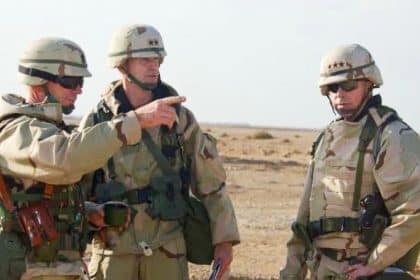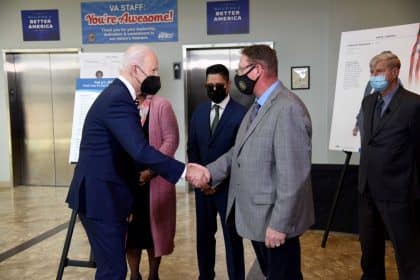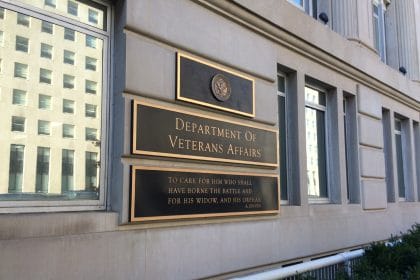VA, Veterans Bracing for 9/11 Anniversary Against Backdrop of Afghanistan Withdrawal

As the 20th anniversary of 9/11 approaches, the Department of Veterans Affairs and many of the Iraq and Afghanistan-era war veterans they serve are bracing for a surge in the need for mental health and post-traumatic stress care.
In response, the VA is notching up its effort to raise awareness of its services in their areas.
According to the department, its mental health officials have already noticed an uptick in veterans seeking help, a situation that could increase even more as they come to terms with their service and as the Afghanistan withdrawal comes to completion.
“Our nation is indebted to the men and women who served in Afghanistan and Iraq, because they made our world infinitely safer,” said VA Secretary Denis McDonough. “Their service did not come without sacrifice as some carry physical and emotional wounds. We must ensure they get the world-class care they’ve earned and deserve.”
Jeremy Butler, CEO of the Iraq and Afghanistan Veterans of America, said he thinks it’s “great” the VA is highlighting the fact this year will be a potentially challenging one for many vets.
“The combination of the 20th anniversary of 9/11 and the AFG withdrawal that is resulting in a rapidly deteriorating security situation could be a very difficult time for those who fought in and around the same areas where the Taliban is regaining ground. Especially if they lost friends in the same fights,” Butler said.
The VA’s Vantage Point blog is running a four-part series on Afghanistan featuring Veterans’ thoughts and perspectives on their time there and the drawdown. The series will run each Tuesday until completed.
The series focuses on:
- Recognizing warning signs of posttraumatic stress.
- How spouses, family members and friends can respond to and assist someone with PTSD.
- Where and how to get help within VA.
- Mobile apps and tips for recovery.
“Our purpose for being there was to prevent further attacks on the homeland,” said Chief Master Sgt. Ramón Colón-López. Colón-López is an Air Force pararescue man who served in Afghanistan and is currently the senior enlisted adviser to the chairman of the Joint Chiefs of Staff.
He adds his fellow service members should be proud of their actions over the last 20 years but also be cognizant of any mental health difficulties.
Colón-López spent years hiding and ignoring his PTSD, which led to heavy drinking and reckless behavior. It wasn’t until he had a mountain biking accident that his wife gave him an ultimatum to get help.
“Veterans should be on the lookout for red flags if news of Afghanistan starts changing behavior,” said the director of the National Center for PTSD Consultation Program, Sonya Norman, Ph.D. “These include isolating, using alcohol and drugs or any increase in unhealthy behaviors compared to normal.”
Norman points out excessive working or video game playing could be signs someone is struggling and needs help.
The series provides information on Vet Centers which started after the Vietnam War and addresses the parallels between conflicts and how they can help through readjustment counseling.
“The signs and symptoms [the VA is] highlighting are good indicators of a potential mental health care need both now but at any time,” the IAVA’s Butler said. “We’ve got a long way to go to educate the public on the realities of mental health care and for people to know where to turn for help when it is needed.”






















